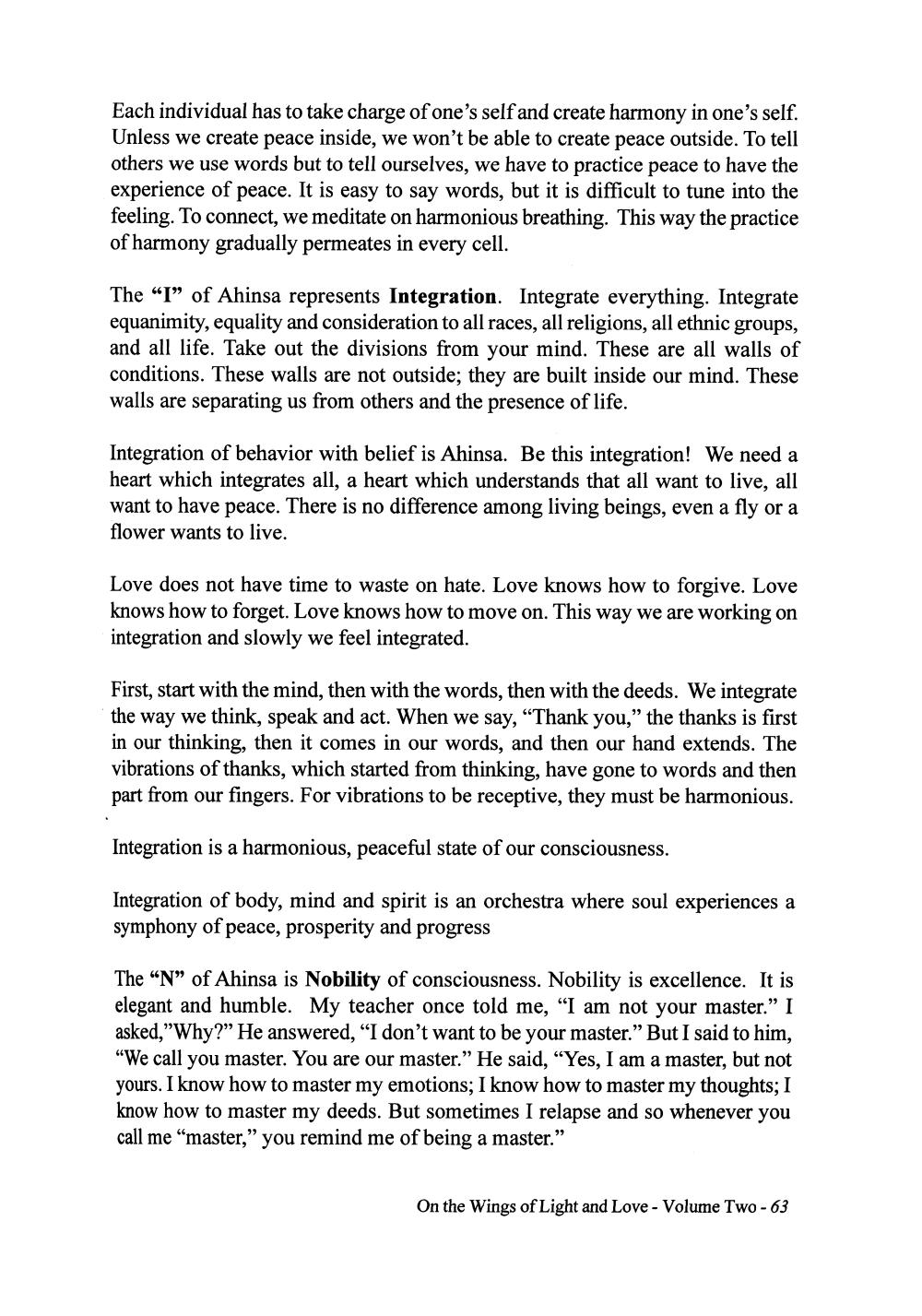________________
Each individual has to take charge of one's self and create harmony in one's self. Unless we create peace inside, we won't be able to create peace outside. To te others we use words but to tell ourselves, we have to practice peace to have the experience of peace. It is easy to say words, but it is difficult to tune into the feeling. To connect, we meditate on harmonious breathing. This way the practice of harmony gradually permeates in every cell.
The “I” of Ahinsa represents Integration. Integrate everything. Integrate equanimity, equality and consideration to all races, all religions, all ethnic groups, and all life. Take out the divisions from your mind. These are all walls of conditions. These walls are not outside; they are built inside our mind. These walls are separating us from others and the presence of life.
Integration of behavior with belief is Ahinsa. Be this integration! We need a heart which integrates all, a heart which understands that all want to live, all want to have peace. There is no difference among living beings, even a fly or a flower wants to live.
Love does not have time to waste on hate. Love knows how to forgive. Love knows how to forget. Love knows how to move on. This way we are working on integration and slowly we feel integrated.
First, start with the mind, then with the words, then with the deeds. We integrate the way we think, speak and act. When we say, “Thank you,” the thanks is first in our thinking, then it comes in our words, and then our hand extends. The vibrations of thanks, which started from thinking, have gone to words and then part from our fingers. For vibrations to be receptive, they must be harmonious.
Integration is a harmonious, peaceful state of our consciousness.
Integration of body, mind and spirit is an orchestra where soul experiences a symphony of peace, prosperity and progress
The "N” of Ahinsa is Nobility of consciousness. Nobility is excellence. It is elegant and humble. My teacher once told me, "I am not your master.” I asked, "Why?" He answered, “I don't want to be your master." But I said to him, "We call you master. You are our master.” He said, “Yes, I am a master, but not yours. I know how to master my emotions; I know how to master my thoughts; I know how to master my deeds. But sometimes I relapse and so whenever you call me “master,” you remind me of being a master.”
On the Wings of Light and Love - Volume Two - 63




